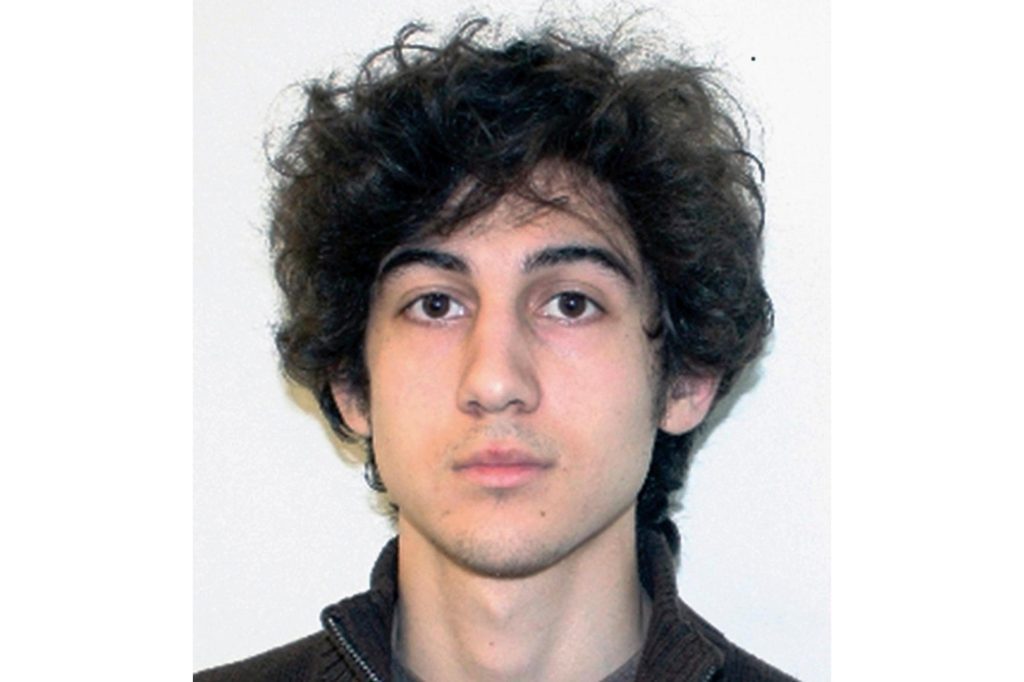By ALANNA DURKIN RICHER (Associated Press)
BOSTON (AP) — On Thursday, a federal appeals court ordered the judge who presided over Dzhokhar Tsarnaev's trial for the Boston Marathon bombing to look into the defense's assertions of juror bias and decide whether his death sentence should remain.
A three-judge panel of the Boston-based 1st U.S. Circuit Court of Appeals did not invalidate Tsarnaev’s death sentence. Defense attorneys had sought that while alleging bias by two jurors who served on the jury that found him guilty for his involvement in the bombing that resulted in the deaths of three individuals and injuries to hundreds near the marathon’s ending point in 2013.
However, the appeals court determined that the trial judge did not adequately investigate Tsarnaev’s claims, and sent the case back to the judge for a new examination. If the judge finds that either juror should have been disqualified, he should void Tsarnaev’s sentence and hold a new penalty-phase trial to determine whether Tsarnaev should be sentenced to death, the appeals court stated.
“And even then, we once again emphasize that the only question in any such proceeding will be whether Tsarnaev will face execution; regardless of the outcome, he will spend the rest of his life in prison,” it said.
The U.S. attorney’s office in Massachusetts declined to comment on Thursday. The Justice Department can either ask the full 1st Circuit to hear the matter or go to the U.S. Supreme Court. Lawyers for Tsarnaev didn’t immediately respond to emails seeking comment on the decision.
It’s the latest twist in the long-running case, which has already been argued in front of the U.S. Supreme Court once. The high court in 2022 reinstated the death sentence imposed on 30-year-old Tsarnaev after the 1st Circuit threw out the sentence in 2020. The circuit court found then that the trial judge did not sufficiently question jurors about their exposure to extensive news coverage of the bombing. The Supreme Court justices voted 6-3 in 2022 when they ruled that the 1st Circuit’s decision was wrong.
The 1st Circuit reconsidered the case after Tsarnaev’s lawyers urged it to examine issues the Supreme Court didn’t consider. These included whether the trial judge improperly mandated the trial to be held in Boston and unfairly dismissed defense objections to seating two jurors they claim lied during questioning.
Despite a pause on federal executions ordered by Attorney General Merrick Garland, the Justice Department has continued to advocate for upholding the death sentence in Tsarnaev’s case. The halt came after the previous administration led by Donald Trump executed 13 individuals in its final six months.
Oral arguments before the three-judge 1st Circuit panel over a year ago focused on two jurors Tsarnaev’s lawyers allege were untruthful during the extensive jury selection process.
One of them stated that she had not made any comments about the case online, but she had actually retweeted a post calling Tsarnaev a “piece of garbage.” Another juror said none of his Facebook friends had commented on the trial, even though one had encouraged him to “play the part” so he could get on the jury and send Tsarnaev to “jail where he will be taken care of,” defense attorneys claim. Tsarnaev’s lawyers raised these concerns during jury selection, but maintain that the judge opted not to investigate them further.
William Glaser, a lawyer from the Justice Department, admitted in court that the jurors made inaccurate statements. However, he suggested that the jurors may have not intentionally lied, but instead, may have remembered things incorrectly. He argued that the trial judge acted properly.
The appeals court noted that there could be harmless reasons for the jurors' behavior, such as forgetting about their social media posts or misunderstanding the judge's questions. However, the appeals court stated that the trial judge made a mistake by not conducting a thorough investigation to rule out more serious explanations.
The appeals court panel voted 2-1 to send the case back for further investigation into the jurors, with Judges William Kayatta Jr. and O. Rogeriee Thompson, who were both nominated to the court by President Barack Obama, supporting the idea.
Judge Jeffrey Howard, nominated by George W. Bush, disagreed, writing that there was enough evidence for the district court to conclude that the two jurors in question were not unfairly biased.
The appeal did not challenge Tsarnaev's guilt in the deaths of Lingzi Lu, a 23-year-old Boston University graduate student from China; Krystle Campbell, a 29-year-old restaurant manager from Medford, Massachusetts; and 8-year-old Martin Richard of Boston. It focused on whether he should receive the death penalty or be imprisoned for life.
The defense argued that Tsarnaev had been influenced by his older brother, Tamerlan, who died in a shootout with police shortly after the April 15, 2013, bombing.
Tsarnaev was found guilty of all 30 charges, including conspiracy, using a weapon of mass destruction, and the killing of Massachusetts Institute of Technology Police Officer Sean Collier during the Tsarnaev brothers' attempt to flee.
Prosecutors told the jurors that the brothers carried out the attack to retaliate against the United States for its involvement in Muslim countries' wars. In the boat where Tsarnaev was found hiding, he left a confession referencing the wars and stating, among other things, “Stop killing our innocent people and we will stop.”









